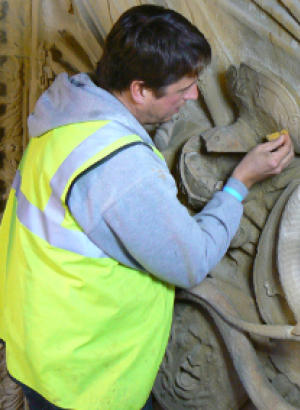
Stone mason

Stone mason
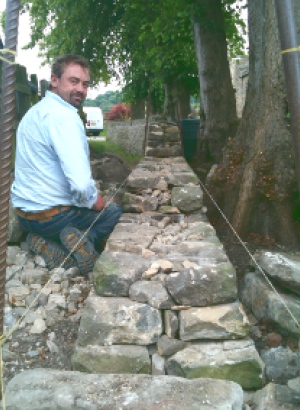
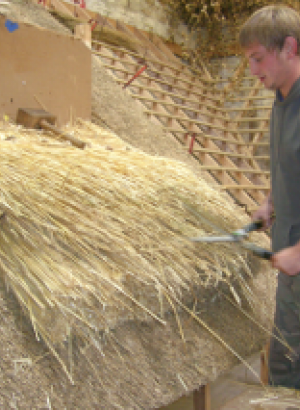
Thatching apprentice
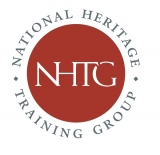 National Heritage Training Group (NHTG)
National Heritage Training Group (NHTG) The National Heritage Training Group (NHTG), funded by the CITB, Historic England and Historic Scotland, is a voluntary organisation responsible for coordinating the on-going development and delivery of traditional building crafts training and qualifications in the heritage sector of the UK. The organisation manages a comprehensive online Traditional Building Crafts Training Database and digital Information Centre. It operates a helpdesk and promotes the value of traditional building skills training to all stakeholders to support the sustainability and viability of the UK’s historic built environment.
What does the NHTG do?
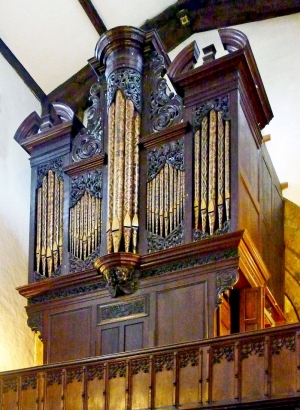
St Mary the Virgin, Finedon
_low_res_(2)-300x410.jpg)
All Saints, Thorpe Malsor
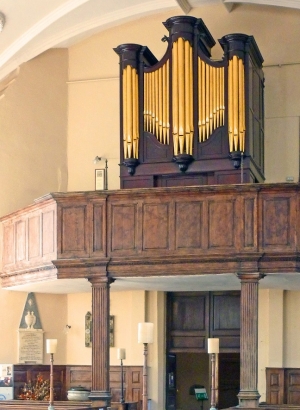
St Swithun's, Worcester
 Association of Independent Organ Advisers (AIOA)
Association of Independent Organ Advisers (AIOA) The Association of Independent Organ Advisers, formed in 1996, is a specialist organisation of accredited professionals providing a comprehensive service where completely independent, detailed advice is needed concerning pipe organs. AIOA members have considerable expertise relating to issues which can arise when historic instruments are encountered, especially where matters of conservation and preservation are concerned. Members have been consulted by, among others, Church Buildings Council, Churches Conservation Trust, Society for the Protection of Ancient Buildings, Heritage Lottery Fund, National Trust, Arts Council and Historic England.
An AIOA adviser will, for example, and depending on the level of involvement required, prepare an initial report on the instrument which can include detailed consideration of its history, its potential significance and any conservation issues. From this, a brief against which suitable organ builders will be invited to tender can be drawn up.
Advice can be broadened out to include an evaluation of tenders received, contractual arrangements between the client and the chosen craftsman, and monitoring of work in progress. Finally, the adviser can certify the work done and provide guidance relating to care in the future.
Training and Education:
Publications:
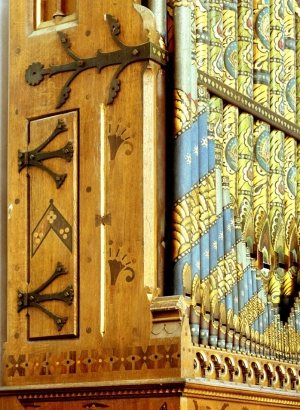
St George's, Stowlangtoft

St Botolph's Church Aldgate, London
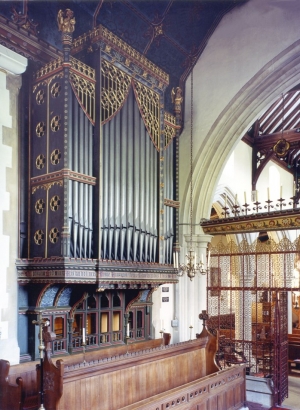
St Mary the Virgin. Radwinter
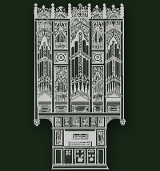 British Institute of Organ Studies (BIOS)
British Institute of Organ Studies (BIOS) The British Institute of Organ Studies (BIOS) was founded in 1975 and serves effectively as the amenity society for the British organ. It lobbies Government, Historic England and other national bodies on behalf of the instrument and, through the Historic Organs Certificate Scheme, lists organs deemed to be of historic and musical significance to our national musical heritage. Historic England, the Heritage Lottery Fund and other national bodies concerned with buildings containing organs increasingly take note, where appropriate, of the listed status of an instrument, albeit currently non-statutory.
Training and Education:
Publications:
Grants:
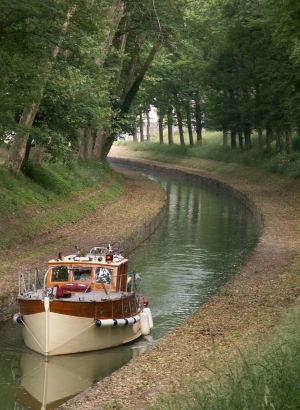
M. Y. Ruda on the Burgundy Canal, France
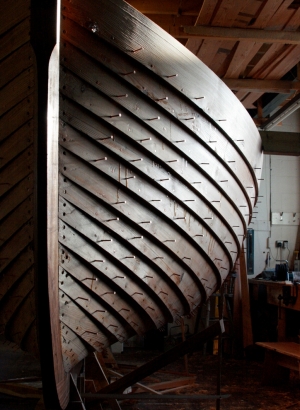
Beer Lugger, 2010

Sceptre in the Sound of Islay
National Historic Ships UK (NHS-UK) is a government funded, independent organisation which provides objective advice to UK governments and local authorities, representing the interests of all those in the historic vessels sector. Its main activity is the maintenance and development of the National Historic Ship Registers which include: the National Register of Historic Vessels (NRHV); the National Archive of Historic Vessels (NAHV); the Overseas Watch List (OWL); and the UK Replica List. In addition, NHS-UK is the initiator and manager of the Shipshape Network which was set up to promote the regeneration of traditional maritime skills, encourage regional activities and improve communication amongst heritage training schemes. NHS-UK provides guidance on best practice in the form of the three volume series Understanding Historic Vessels and has recently successfully accredited a BTEC in historic vessel conservation via the awarding body Edexcel.
Advice
Please note that NHS-UK cannot help with:
Training & Education
Awards
Information and networking
Grants
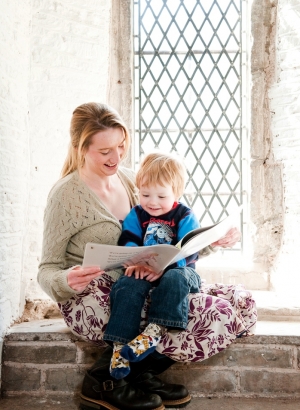
St Peter's, Peterchurch, Herefordshire
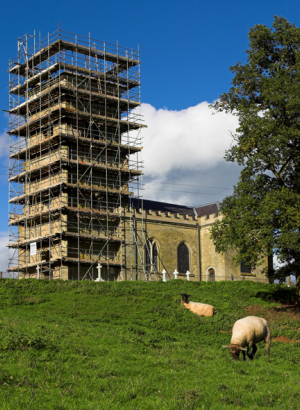
Stanford on Teme, Worcestershire
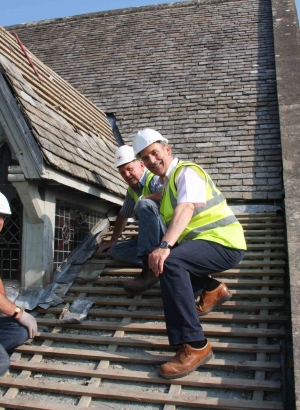
St Arvan Church, Monmouthshire, Wales
-160x160.jpg) National Churches Trust
National Churches Trust The National Churches Trust, under the patronage of Her Majesty the Queen, is the only national, independent, non-profit organisation dedicated to promoting and supporting church buildings of historic, architectural and community value across the UK.
The National Churches Trust was founded in 2007 as the successor to the Historic Churches Preservation Trust (HCPT). The HCPT was founded in 1953 to restore architecturally and historically significant parish churches.
We advocate:
The Trust, which is independent of government and church authorities:
The National Churches Trust supports a wide variety of projects through our Grant Programmes. Funding is a very important issue for those caring for places of worship. Most people are unaware that the running costs and repair bills for places of worship are not paid for by denominational bodies, church authorities or the state. Paying a large repair bill or introducing basic facilities (such as toilets, a kitchen or even running water) is a challenge, especially as those who care for these public buildings are usually volunteers. Whether through repairing a roof or helping to install an accessible toilet, our grants help people to continue to serve and to better serve their local communities. We will consider applications from listed and unlisted places of worship across the UK. We try to help a number of projects each year, by offering grants towards the cost of major projects.
Repair Grants
Our Repair Grants help places of worship to become wind and watertight. We concentrate on the most urgent structural repairs and give grants of between £10,000 and £40,000 to projects with estimated costs of at least £50,000.
Community Grants
Our Community Grants help towards the cost of installing essential facilities, such as kitchens and toilets, improving access for people with special needs/disabilities. These mean that places of worship can be used by more people, thereby providing benefits for congregations, local people and visitors. We can give grants of between £5,000 and £25,000.
Partnership Grants
We work with Local Churches Trusts in targeting grants of £2,500 to £10,000 for urgent repair projects with estimated costs of less than £50,000. We aim to increase the grant giving capacity of the national network of independent Local Churches Trusts and to benefit from their local knowledge and expertise. Applications for these grants should be made direct to the Local Churches Trusts.
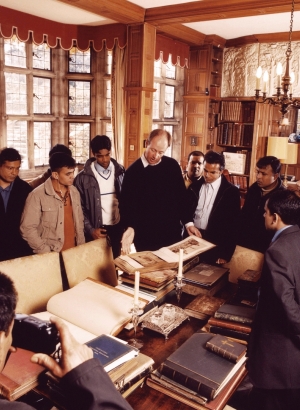
Students from the North Lozells Bangladeshi Multipurpose Centre ESOL class visiting Tissington Hall
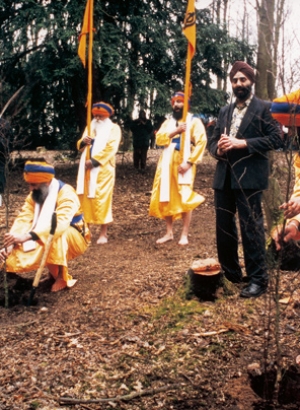
Member of Nottingham's Sikh Community planting Khalsa Wood in Bestwood Park, Nottingham - to mark the 300th anniversary of the founding of Khalsa - the fellowship of baptised Sikh's by Guru Boginda Singh in 1699
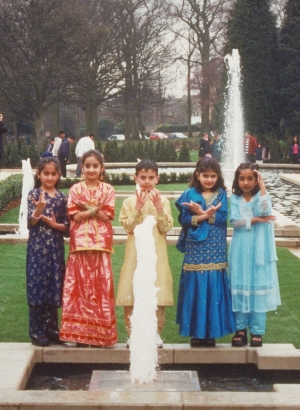
Children at the opening of the Mughal Garden as part of the renovation of Lister Park, Bradford
 Black Environment Network (BEN)
Black Environment Network (BEN) BEN was set up in 1987 to support the full participation of ethnic minority communities in the natural, built and historic environment.
BEN supports participation by ethnic minority communities with the natural and historic environment sector. It does this by raising awareness and enabling opportunities for engagement that are socially and culturally relevant. We work within the sector to ensure that this engagement not only leads to increased activity, but also informs how the sector works, leading to behavioural and attitudinal change that brings communities into mainstream delivery.
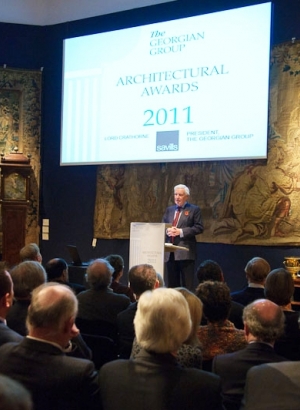
Georgian Group Architectural Awards
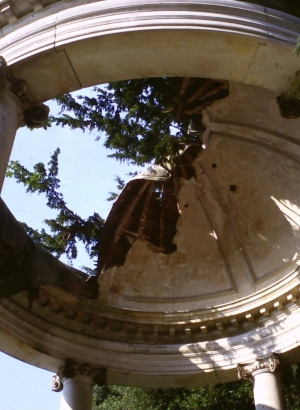
An example of Georgian Group casework
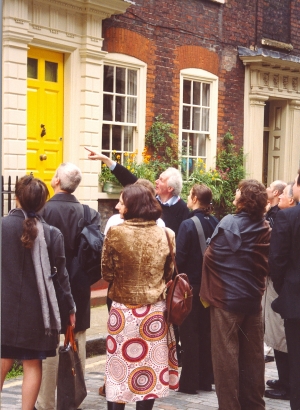
Study week
 Georgian Group
Georgian Group The Georgian Group is the national charity dedicated to preserving Georgian buildings and gardens. It was founded in 1937.
We aim to protect historic buildings through providing advice to owners and architects, campaigning, and through our role as statutory consultees in the planning system. Our annual awards promote excellence in design and conservation. In its casework, the Georgian Group advises councils, church bodies, and others on threats to the historic fabric and setting of structures built between 1700 and 1837.
The Group organises lectures and other events aimed at improving the understanding of aspects of the eighteenth and early nineteenth century built heritage. We also produce technical advice leaflets, and promote the publication of academic research through our journal.
We have a small grants scheme for historic buildings, the Cleary Fund which is distributed annually in September.
Areas of Interest
Please note that the Georgian Group cannot give advice on the following
Training and Education
Awards
Our Architectural Awards recognise exemplary conservation and restoration projects in the United Kingdom and reward those who have shown the vision and commitment to restore Georgian buildings and designed landscapes. Awards are also given for high-quality new buildings in Georgian contexts and in the Classical tradition.
Grants
The group is not generally a grant making body but has two small specialised funds.
The F.E. Cleary Heritage Fund
Through the F. E. Cleary Heritage Fund (commonly known as The Cleary Fund), The Georgian Group gives small grants each year towards the repair and restoration of Georgian buildings and monuments in the UK. The intention is to pump-prime schemes, prompt other sources to make grants and to fund specific elements in larger schemes such as the restoration of memorials, historic fixtures and fittings or decorative ironwork. Around five grants, averaging about £1500 each, are given annually. Grants are usually made towards the conservation of buildings in public ownership or to which there is public access, although they may occasionally be given towards other projects such as conservator’s reports or the recording of threatened buildings.
The Georgian Group/BSECS Dunscombe Colt Research Fellowship
The award, jointly funded by the Georgian Group and the British Society for Eighteenth Century Studies, is intended to facilitate a one-month research visit by a member of The Georgian Group to the Special Collections of the Bodleian Library in the University of Oxford. Applications will be considered from candidates seeking to research projects relating to the architecture or material culture (for example, sculpture) of the long eighteenth century (1660-1840). The award is part-funded from the proceeds of the bequest from Mrs Armida Dunscombe Colt and is named in her honour.
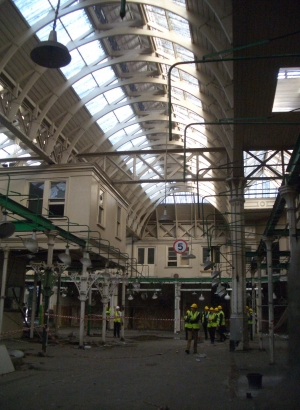
Smithfield General Market - interior
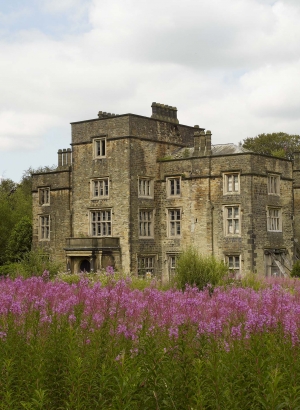
Winstanley Hall
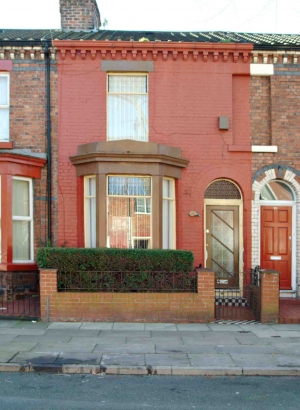
The Welsh Streets, Liverpool
 SAVE Britain’s Heritage
SAVE Britain’s Heritage SAVE has been described as the most influential conservation group to have been established since William Morris founded the Society for the Protection Ancient Buildings over a century ago. It was created in 1975 - European Architectural Heritage Year - by a group of journalists, historians, architects, and planners to campaign publicly for endangered historic buildings. Through press releases, lightening leaflets, reports, books and exhibitions, SAVE has championed the cause of decaying country houses, redundant churches and chapels, disused mills and warehouses, blighted streets and neighbourhoods, cottages and town halls, railway stations, hospitals, military buildings and asylums.
From the start, SAVE has always placed a special emphasis on the possibilities of alternative uses for historic buildings and, in a number of cases, it has prepared its own schemes for re-use of threatened buildings. On repeated occasions SAVE proposals have been instrumental in giving threatened buildings a renewed lease of life. SAVE is also very active on the broader issues of preservation policy.
SAVE welcomes news of buildings at risk near you as well as information on your local campaigns. Please visit our website regularly to check on breaking news and updates on current campaigns.
If you are not already a Friend of SAVE then please take this opportunity to join. An annual subscription of £25 to SAVE provides you with unlimited access to our Buildings at Risk register, newsletters on our activities and discounts on publications.
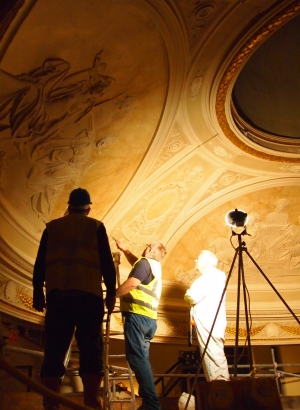
Advice on the inspection and maintenance of suspended fibrous plaster ceilings © Theatres Trust
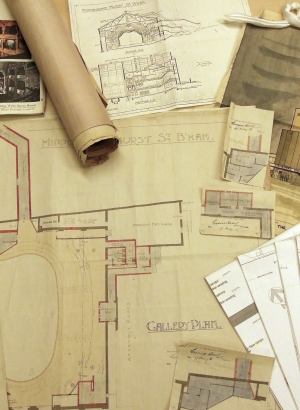
Resources available from the Theatres Trust Archive and Reference Library © Theatres Trust
-300x410.jpg)
Helping bring Theatres at Risk back into use to benefit their communities © Theatres Trust
 Theatres Trust
Theatres Trust The Theatres Trust is The National Advisory Public Body for Theatres, and we work to safeguard theatre use, or the potential for such use and can help you establish the most viable and effective solution for your theatre building.
Established by The Theatres Trust Act 1976, we are a statutory consultee in the planning system in England, Scotland and Wales. We comment on theatre related planning and listed building applications and advise on planning policy to secure cultural policies that protect theatres.
The Trust delivers our statutory planning role in England through The Town and Country Planning (Development Management Procedure) (England) Order 2015, which requires the Trust to be consulted on planning applications involving land on which there is a theatre or which will have an impact on theatre use.
This applies to all theatre buildings, old and new, including those currently in theatre use, those in other uses, and those that are disused. Ciné-variety theatres, circus buildings, arts centres and spaces that have been converted or adapted for theatre use, such as pub theatres, are all within our remit.
The Trust’s central London Resource Centre also provides access to a specialist theatre buildings Reference Library including books and architectural plans.
Planning
Theatres at Risk
Advice
Grants
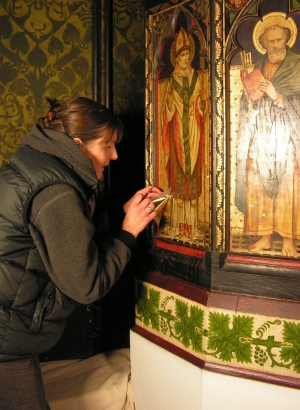
All Saints' Church, Cambridge
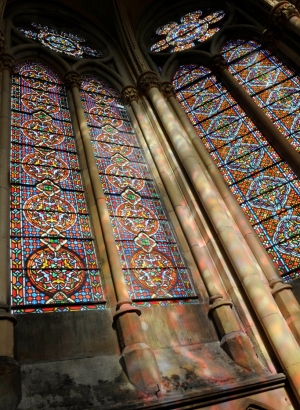
St Mary's Church, Itchen Stoke
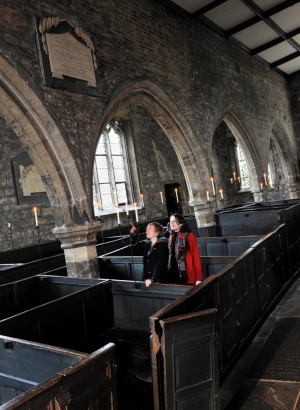
Holy Trinity Church, York
 Churches Conservation Trust
Churches Conservation Trust The Churches Conservation Trust is the national charity protecting historic churches at risk.
We’ve saved over 340 beautiful buildings which attract nearly 2 million visitors a year. With our help and with your support they are kept open and in use – living once again at the heart of their communities.
Our estate is the largest single collection of historic churches in the country, ranging from untouched Medieval gems in idyllic rural settings, to the ornately impressive Victorian church in a busy town centre, as well as a small number of inner urban churches with serious repair problems, which may need a new use to survive. CCT's churches are of international importance and interest.
Training & Education
We offer various training and educational opportunities including school programmes, apprenticeships, Cathedral Camps, placements and craft skills courses.
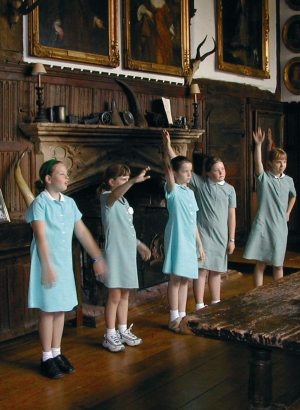
Drama workshop at Dorney Court
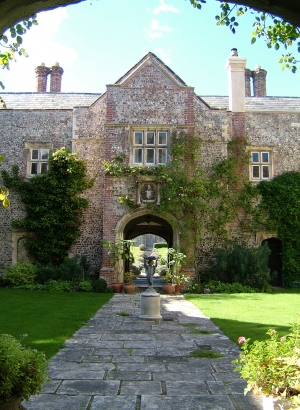
Glynde Place
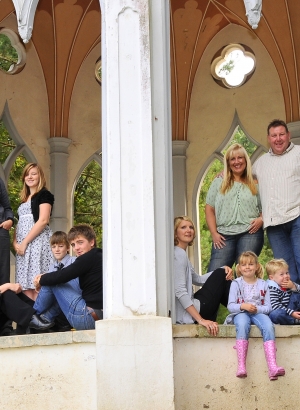
Heritage Open Days: Gothic Temple at Painshill Park
 Historic Houses Association (HHA)
Historic Houses Association (HHA) The HHA, which celebrates its 40th birthday in 2013, represents 1500 independently-owned historic houses, castles and gardens throughout the UK. A third are open to visitors, attracting some 14 million visits each year, and many are also active businesses, hosting weddings, corporate or private events, staging festivals, concerts or conferences; many others welcome special interest groups, tours and other by-appointment visits. One in five of all members welcome educational visits - there are more than 300,000 such visits annually.
The HHA:
Awards
HHA/Christie's Garden of the Year Award
The Garden of the Year Award, sponsored by Christie's, has been presented annually since 1984. The award goes to the HHA Member garden which has been voted as a favourite by the Friends throughout the year. The award reflects the enormous enjoyment which people experience from visiting gardens each year and the personal involvement of the owners in the development and upkeep of the gardens.
HHA/Sotheby's Restoration Award
This award was launched in 2008, with sponsorship from Sotheby's, to recognise and celebrate the restoration work that is continually being undertaken by members of the HHA throughout the United Kingdom. Restoration projects, which must cover the dominant features of a room, building or folly, are judged according to the way in which they respect and are in sympathy with the historic quality of the building. Projects must be open to the public.
Heritage Education Trust
The HHA has been a supporter of the Heritage Education Trust since its inception. http://www.heritageeducationtrust.org.uk. The Trust manages the prestigious Sandford Awards for excellence in heritage education provision and seeks to encourage innovation, transferability and sustainability alongside fun and enjoyment in learning programmes.
Grants
The HHA supports the work of the Heritage Conservation Trust, to aid restoration of art in historic houses and to support learning, access and research projects. http://www.heritageconservationtrust.org.uk
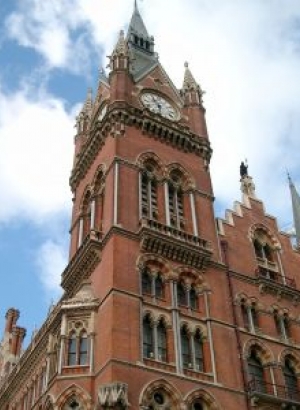
The restoration of St Pancras was the fruit of 50 years of campaigning by the Victorian Society
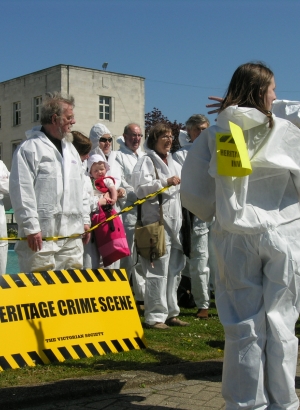
Victorian Society campaigns often involve direct action
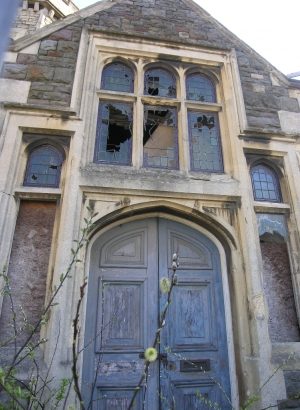
This important Grade II* listed building is in a parlous state; there is much more for us to do
 Victorian Society
Victorian Society The Victorian Society is the champion for Victorian and Edwardian buildings in England and Wales. We were founded in 1958 to campaign for the preservation of important buildings dating from 1837-1914. As a statutory consultee on applications for listed buildings consent we offer advice to councils and churches on the preservation of important buildings. We run campaigns to save threatened buildings and publish a journal which contributes to the academic literature on the work of our period. The Society also runs an extensive events programme.
Care and repair of Victorian and Edwardian buildings (secular)
Care and repair of Victorian and Edwardian buildings (religious)
Listed building applications for demolition, alteration or addition where the building or affected part of the building dates from 1837-1914
Training & education
Grants
The Victorian Society is not a grant-making body.
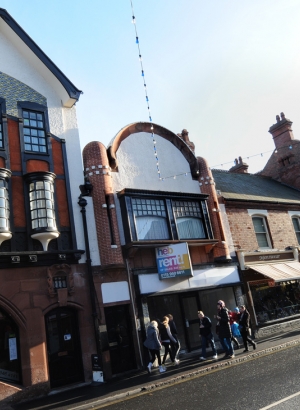
Long Eaton high street regenerated as part of a THI project
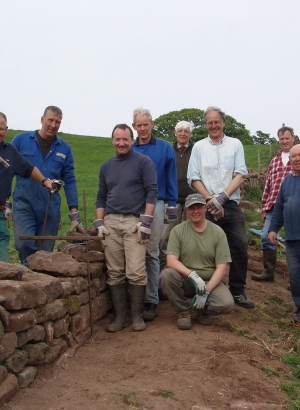
Volunteers dry-stone walling as part of the Habitats and Hillforts Landscape Partnership in Cheshire
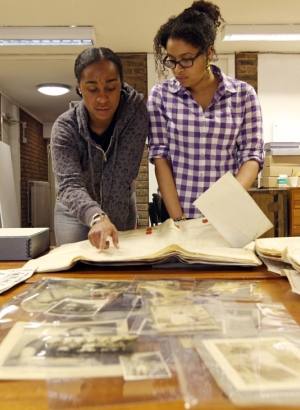
The local community learning about Garnethill Synagogue as part of a Your Heritage project
 Heritage Lottery Fund (HLF)
Heritage Lottery Fund (HLF) The Heritage Lottery Fund (HLF) sustains and transforms a wide range of heritage through innovative investment in projects with a lasting impact on people and places. As the largest dedicated funder of the UK’s heritage, with around £375million a year to invest in new projects and a considerable body of knowledge, we are also a leading advocate for the value of heritage to modern life. From museums, parks and historic places to archaeology, natural environment and cultural traditions, we invest in every part of our heritage.
Through our grant making we aim to:
The Heritage Lottery Fund is administered by the National Heritage Memorial Fund (NHMF) which was given the responsibility of distributing a share of money raised through the National Lottery for Good Causes, to heritage across the UK. We are a non-departmental public body accountable to Parliament via the Department of Culture, Media and Sport.
What we fund
We fund projects which focus on heritage. Heritage includes many different things from the past that we value and want to pass on to future generations, for example:
Our grant programmes
We fund heritage projects of all sizes, with grants from £3,000 to over £5million.
We want to support projects that make a lasting difference for heritage, people and communities.
Our Heritage (£3,000 to £100,000)
This is our general small grants programme for all types of heritage projects. It is a flexible programme particularly designed for voluntary and community groups and first-time applicants.
Sharing Heritage (£3,000 to £10,000) From April 2013
This new grants programme is for any not-for-profit group wanting to explore, share and celebrate their community’s heritage.
Heritage Grants (Grants of over £100,000)
This is our open programme for grants over £100,000, for any type of project related to the national, regional, or local heritage in the UK.
Young Roots (£3,000 to £50,000)
This programme is for projects led by young people. It aims to involve 11-25 year-olds in finding out about their heritage, developing skills, building confidence and promoting community involvement.
All Our Stories (Grants from £3,000 to £10,000)
All Our Stories is an opportunity for everyone to get involved in their heritage. With our funding and support you could plan activities that help you explore, share and celebrate yours.
Townscape Heritage Initiative (£100,000 to £2,000,000)
Townscape Heritage Initiative makes grants that help communities to regenerate Conservation Areas displaying particular social and economic need.
Heritage Enterprise (£100,000 to £5,000,000) From April 2013
The Heritage Enterprise programme is for projects that seek to bring back historic buildings into active commercial use, helping to improve the local built environment whilst at the same time stimulating economic growth in under-performing areas across the UK.
Parks for People (£100,000 to £5million)
Parks for People is for projects related to historic parks and cemeteries in the UK.
Landscape Partnerships (£250,000 to £2million)
This programme supports schemes that are led by partnerships of local, regional and national interests, which aim to conserve areas of distinctive landscape character throughout the UK.
Skills for the Future (£100,000 to £1million)
Skills for the Future funds projects which provide training placements to meet skills shortages in the heritage sector, and fully support trainees to learn practical skills.
Grants for Places of Worship (£10,000 to £250,000)
The Grants for Places of Worship programme is for projects that involve urgent structural repairs to places of worship that are at risk. As part of a repair project we can also fund work to encourage greater community use and engagement.
Catalyst (Various)
The Catalyst grants initiatives form part of a broader partnership initiative between HLF, DCMS and Arts Council England (ACE). It aims to encourage more private giving to culture and heritage, and to build the capacity and skills of cultural and heritage organisations to fundraise from private donors, corporate sources, trusts and foundations.
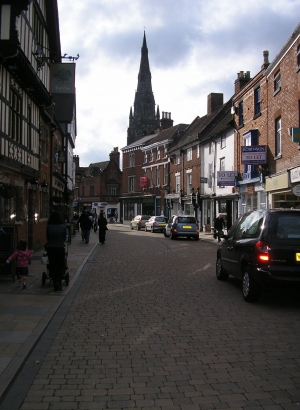
Conservation is about how places survive into the future while respecting the past - Tamworth Street Lichfield
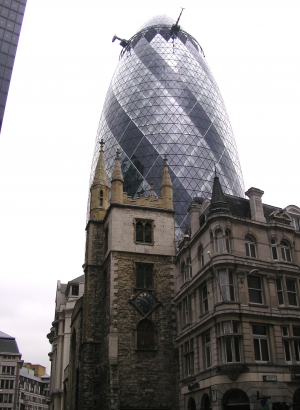
Managing change means considering both old and new
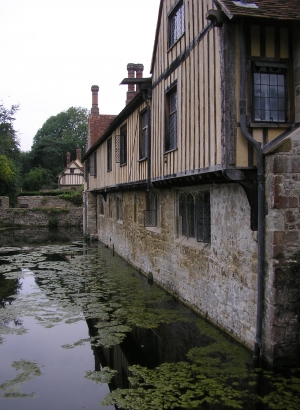
Study days are critical for understanding issues- Igtham Mote
 Institute of Historic Building Conservation (IHBC)
Institute of Historic Building Conservation (IHBC) The Institute of Historic Building Conservation (the IHBC) is the principal professional body for building conservation practitioners and historic environment specialists working in the UK.
The IHBC is a registered charity and as such exists to:
Advice
Advocacy
Awards (Student)
Bursaries
Consultation
Employment
Events
Guidance
Jobs
Local Branch networks
News
Partnership
Publications
Registers (including Skills Registers)
Research
Skills
Social networking
Standards
Training
Volunteering
Web support
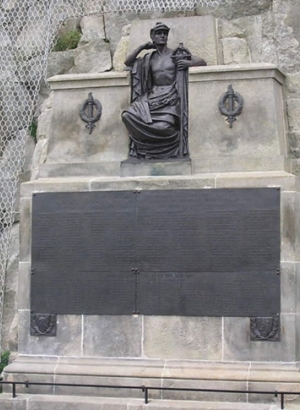
Lossiemouth war memorial conserved as part of a grant project © George Wilson 2011
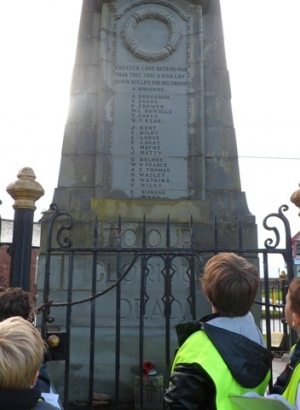
The Learning Programme will teach young people the importance of war memorials © War Memorials Trust 2012
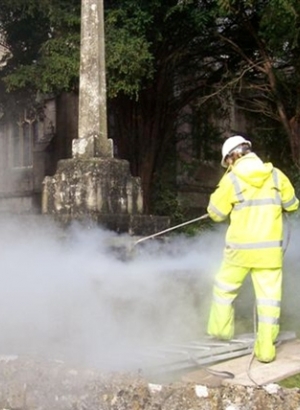
West Lavington war memorial being cleaned as part of a grant project © West Lavington Parish Council 2010
 War Memorials Trust
War Memorials Trust War Memorials Trust works for the protection and conservation of war memorials within the UK to ensure they remain part of our communities forever. War memorials commemorate our shared past, an important part of our national culture.
War Memorials Trust seeks to cooperate with other organisations, at both national and local level, to better safeguard the future of war memorials in both their social and historical context.
War Memorials Trust is an independent registered charity and as such is dependent on voluntary income.
Conservation
The Trust has a dedicated Conservation Team that can provide free advice on any memorial issue or technical conservation enquiry. This service is available to anyone with a memorial enquiry. The Conservation Team can also advise on maintenance works and how to prevent theft. The Trust’s website has extensive information on conservation and repair and helpsheets on most general and technical memorial issues: www.warmemorials.org/conservation-advice.
Grants
War Memorials Trust administers grant schemes which cover the whole of the UK. Grants are for conservation and repair of war memorials and all grant schemes are open to anyone to apply; individuals or organisations, including councils. Information on grants, eligibility and how to apply are available on the Trust’s website: www.warmemorials.org/grants. Please note that the Trust cannot provide funding retrospectively under any circumstances.
Learning
Launched in August 2011, War Memorials Trust’s youth focused Learning Programme works to educate today’s young people, the war memorial custodians of tomorrow, about the
significance of war memorials.
By investigating the stories of those commemorated and discovering the fascinating history of local war memorials, we hope young people in schools, and those involved in Cadets, Scouting, the Duke of Edinburgh Award and youth groups, will be inspired to continue to preserve our war memorial heritage. More information is available on the Learning Programme website: www.learnaboutwarmemorials.org.
Projects
The Trust is involved in a number of projects which may be of assistance to those interested in, or custodians of, war memorials:
This is a partnership between the SmartWater Foundation and War Memorials Trust. In Memoriam 2014 protects memorials at risk of theft or damage by marking them with a forensic liquid called SmartWater. The crime prevention fluid, which is being made available at no charge, will not only make memorials uniquely identifiable, it also offers robust traceability should a theft occur. This will act as a significant deterrent to those considering desecrating our war memorials by massively increasing their chances of detection and subsequent arrest. Further information and registration are available on the website: www.inmemoriam2014.org.
War Memorials Online is run by War Memorial Trust and supported by Historic England. It will bring together, for the first time, information on the UK’s war memorials held by the leading experts. Working with the public, it is the ambition of War Memorials Online to create the UK’s most comprehensive understanding of war memorials. Members of the public can browse our current records and upload their own content, photos and condition reports to help create a complete picture of all war memorials across the country. For further information please visit the website: www.warmemorialsonline.org.uk.
In November 2010 War Memorials Trust approached local authorities across the UK to ask if they had a War Memorials Officer. A War Memorials Officer is the single, or main, point of contact at the council who deals with war memorial issues. They are rarely called 'War Memorials Officer' within the local authority structure as war memorials are just one part of their job but War Memorials Trust uses the phrase to identify the person who deals with war memorials. Details of your local War Memorials Officer can be found on the Trust’s website: www.warmemorials.org/wmo.
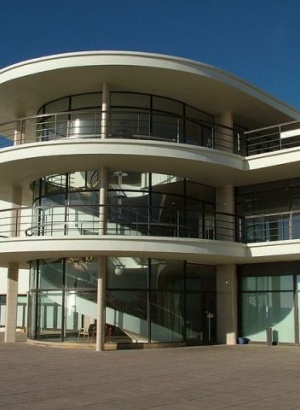
De la Warr Pavilion, Bexhill on Sea
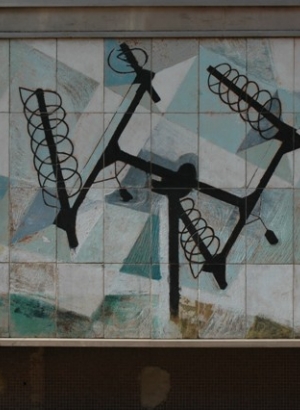
Annan Murals, City of London
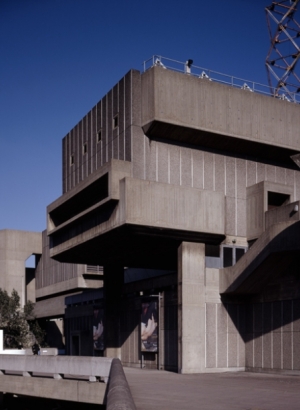
Hayward Gallery, London
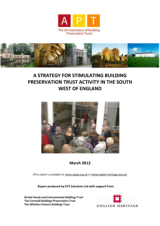 Twentieth Century Society
Twentieth Century Society The Twentieth Century Society exists to safeguard the heritage of architecture and design in Britain from 1914 onwards. The Society’s prime objectives are conservation and education and to protect the buildings and design that characterise the Twentieth Century in Britain. Our aim is extend knowledge and appreciation of them, whether iconic buildings like the Royal Festival Hall or every artefacts, like the red telephone box.
The Twentieth Century Society was founded as the Thirties Society in 1970 – the year the Thirties exhibition was shown at the Hayward Gallery. The need for a specialised conservation society covering the period after 1914 (the limit of the scope of the Victorian Society, founded twenty years earlier) was increasingly appreciated in the 1970s as understanding and awareness of twentieth century design developed, and many key buildings faced demolition. The name was later changed to reflect our increasingly broad focus.
We are the key organisation concerned with buildings of all styles and all building types and the Society is a constituent member of the Joint Committee of National Amenity Societies. We are consulted by all English local planning authorities on applications for listed building consent involving partial or total demolition. We also campaign for listing of buildings we consider to be of suitable quality.
We run a regular lecture series on themes as diverse as twentieth century department stores, to Britain and the Bauhaus, and we publish a magazine three times a year. We also run a series of foreign visits and regular tours around England to a range of some of the best examples of architecture and design from our period, ranging from private houses and public buildings to churches and protected historic landscapes.
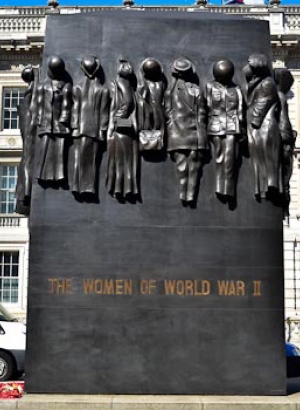
Memorial to the Women of World War II
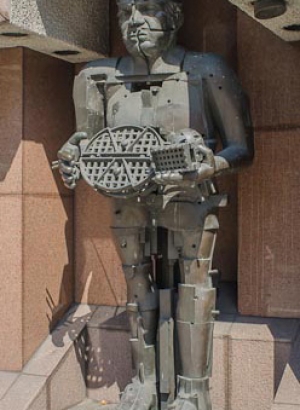
The Artist as Hephaestus by Paolozzi
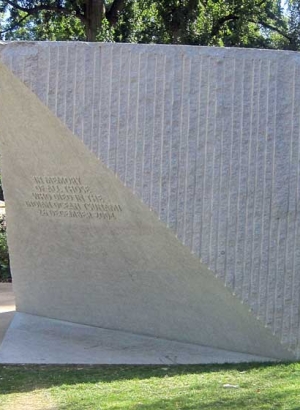
Indian Ocean Tsunami Memorial
Established in 1991, it aims to bring together individuals and organisations with a mutual interest in public sculpture and monuments, their production, preservation and history.
The PMSA aims to heighten public appreciation of Britain's public sculpture, and to contribute to its preservation, protection and promotion. It seeks to achieve this through several projects that include: the National Recording Project, the Sculpture Journal, Public Sculpture of Britain series, Save our Sculpture and the Marsh Award for Excellence in Public Sculpture, and the Marsh Fountain of the Year Award.
Awards
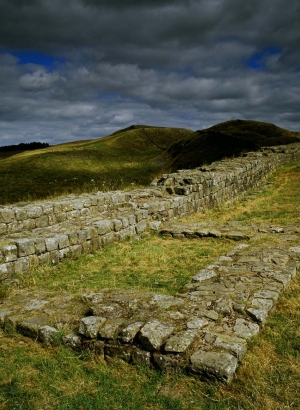
Hadrian's Wall World Heritage Site
_Gavin_Kingcome_ICOMOS-UK-300x410.jpg)
Maritime Greenwich World Heritage Site
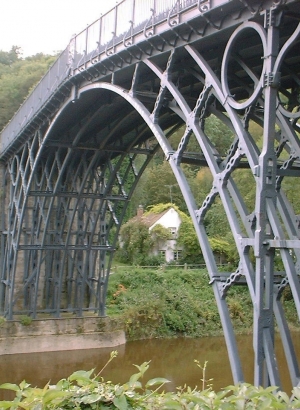
Ironbridge Gorge World Heritage Site
 ICOMOS-UK
ICOMOS-UK ICOMOS-UK is the UK National Committee of ICOMOS, the International Council on Monuments and Sites. We are an independent charity, formed in 1965. Our mission is to promote and support best practice in the conservation, management, planning and development of our historic environment in the UK and internationally.
At an international level ICOMOS develops best practice in the conservation and management of cultural sites and has a special role as adviser to the UNESCO World Heritage Committee on cultural world heritage sites.
Membership
We have an active membership of individuals and institutions who come from a wide range of backgrounds in the UK and internationally.
Events
We run regular events relating to world heritage and conservation
Committees
Our UK and international committees are active in developing new thinking and practice about how to conserve, manage and promote cultural heritage.
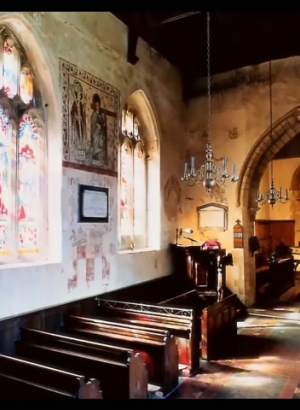
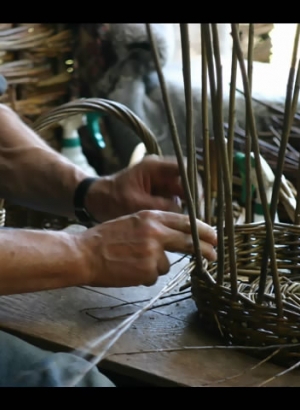
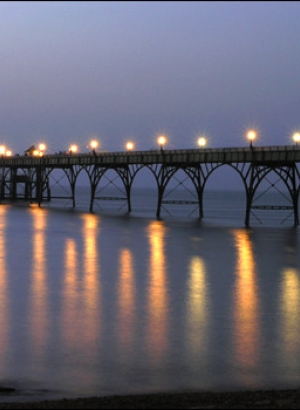
 Heritage Alliance
Heritage Alliance The Heritage Alliance is the biggest coalition of heritage interests in the country, representing over 90 non-governmental heritage bodies with a combined membership of over 5million. Founded in 2002 to promote the central role of the independent heritage movement in the historic environment, it has become a leading advocate of everyone from specialist advisers, practitioners and managers to volunteers, owners, national funders and regeneration projects. To this end, it briefs decision-makers, coordinates action amongst members and updates the sector on relevant policy changes.
Advice
Advocacy
Information-sharing and networking
Awards
Grants
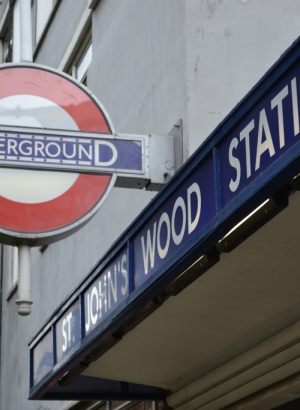
One of 16 underground stations listed in 2010
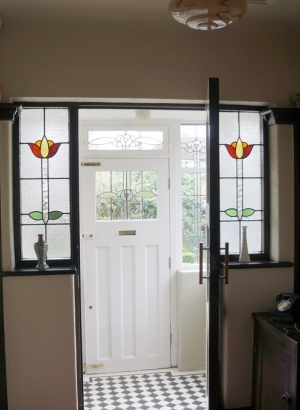
Inside John Lennon's childhood home
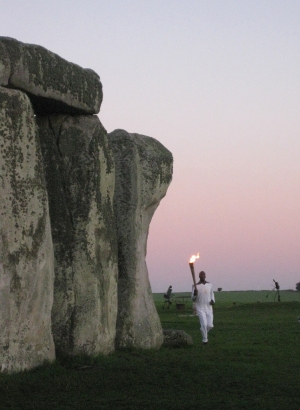
Former Olympic athlete Michael Johnson with the Olympic Flame at Stonehenge as dawn breaks
Historic environment
We are responsible for ensuring that the historic environment of England is properly protected and conserved for the benefit of present and future generations.
We seek to promote understanding of the historic environment so that people can appreciate and enjoy the heritage assets around them.
We fund English Heritage, Government’s statutory advisor on the historic environment, and the largest source of non-lottery grant funding for heritage assets.
We are responsible for the policy directions governing the Heritage Lottery Fund.
Protecting the historic environment
Our aim is that England’s historic environment should be conserved, enhanced and enjoyed for the quality of life it brings to current and future generations.
Heritage assets
Those parts of the historic environment that are valued because of their historic, archaeological, architectural or artistic interest are known as 'heritage assets'. Some heritage assets have a level of interest that justifies statutory protection through designation.
Our responsibilities
We are responsible for designating, re-designating and de-designating the following categories of heritage asset:
We are also responsible for determining applications for:
Together with English Heritage, we also work closely with other departments, such as the Department for Communities and Local Government and the Department for the Environment, Food and Rural Affairs to ensure that the delivery of government policy affords appropriate protection to England’s historic environment and heritage assets.
We also work with colleagues in Scotland, Wales and Northern Ireland to coordinate UK nominations for World Heritage Sites.
Places of worship
We are responsible for managing the Government’s interests in historic places of worship.
This covers the following main areas:
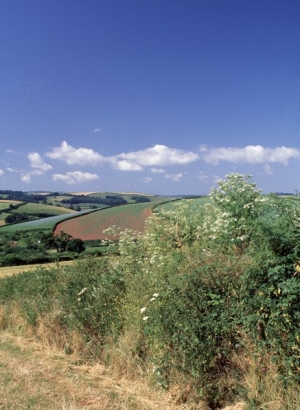
Devon, near Totnes
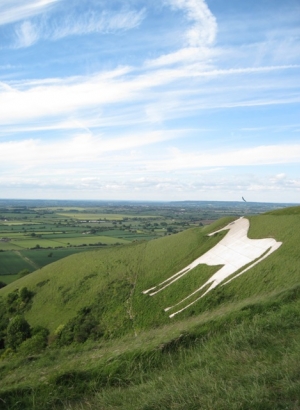
Westbury White Horse
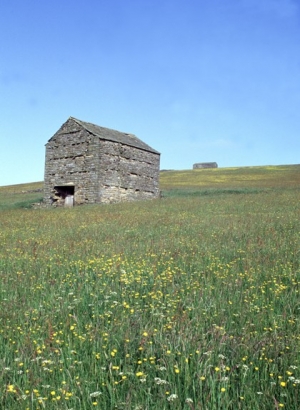
Swaledale Meadow, Yorkshire Dales
 Campaign to Protect Rural England (CPRE)
Campaign to Protect Rural England (CPRE) The CPRE was founded in 1926 by Sir Patrick Abercrombie and now has 200 local groups, including a branch in every county.
We campaign for a beautiful and living countryside that everyone can enjoy, working to influence local and national policies to protect landscape character and diversity. CPRE regards England’s built and natural heritage as essential to the local distinctiveness of our countryside. We work to protect landscape features like hedgerows and dry-stone walls, and the Green Belt setting of historic towns such as Bath and York. Our dedicated volunteers campaign on behalf of local communities, improving local environments and influencing planning decisions.
Please note that CPRE cannot help with:
Awards
Grants
CPRE is not a grant-making body.
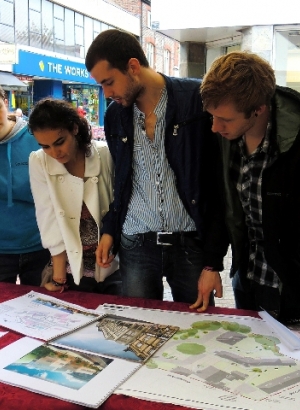
Civic Day
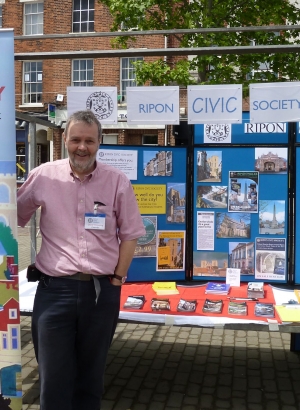
Ripon Civic Society
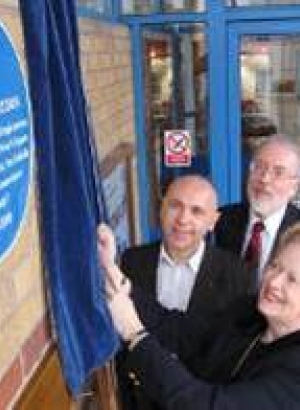
Leeds Blue Plaque
 Civic Voice
Civic Voice Civic Voice is the national charity for the civic movement in England. We make places more attractive, enjoyable and distinctive. We promote civic pride. We are a small light footed organisation. As a national voice with a strong local presence we make a difference where it matters. You will find us lobbying in Whitehall and Westminster, campaigning with local volunteers, speaking out in the media, undertaking research, building partnerships and promoting civic pride. We support local groups and help them work together. We organise a national convention for the civic movement and give local groups a national voice. We combine community action with sense of place for the benefit of everyone. We talk civic sense.
Planning
Heritage and conservation
Civic pride
Campaigning
Social action
Civic price
Awards
Civic Volunteer of the Year
Civic group of the Year
Civic Day Awards
Grants
Civic Voice is not a grant making body but does give financial assistance to civic societies for specific projects
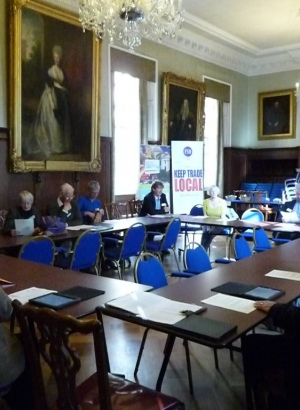
ASHTAV AGM
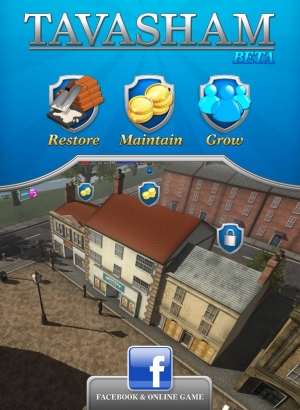
Tavasham Game
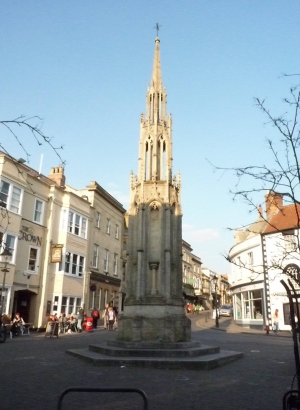
Historic Town Centres (Glastonbury)
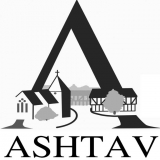 ASHTAV (Association of Small Historic Towns and Villages of the United Kingdom)
ASHTAV (Association of Small Historic Towns and Villages of the United Kingdom) ASHTAV (Association of Small Historic Towns and Villages of the United Kingdom) is an organisation that works to unite amenity and civic societies, parish and own councils in small historic towns and villages throughout Britain.
Inform
We keep our members informed of developments and best practice in local government, planning, environment, housing and transport through our magazine, Director's blog, website and seminars.
Encourages the preservation of beauty, distinctiveness, social fabric and vitality of our historic towns.
ASHTAV encourages high standards of architecture and planning so that new developments respect the existing built environment.
Who benefits?
Those with a legal and management responsibility for small towns and villages such as town and parish councils.
Those with a community interest such as amenity and civic societies.
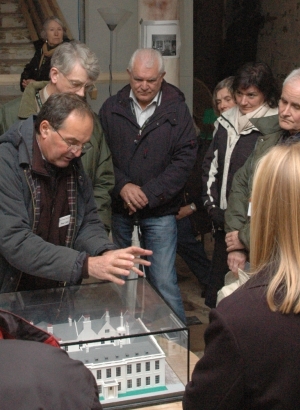
APT Conference Delegates at Poltimore House
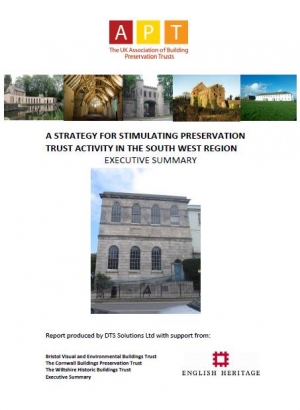
APT research report
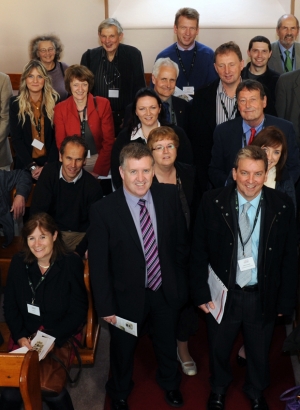
Delegates in Gracehill Moravian Church
 Association of Preservation Trusts (UKAPT)
Association of Preservation Trusts (UKAPT) Since 1989, UK APT has been building a network that now consists of 250 building preservation trusts (BPTs). UKAPT is the only UK wide body that exclusively represents the interests of Building Preservation Trusts by providing support, strategic guidance and encouragement to the movement.
In 2010, UK APT adopted the following mission statement:
‘APT is the voice of Building Preservation Trusts in the UK; it promotes and supports the rescue and sustainable use of historic buildings at risk’.
UK APT therefore has two main roles:
1. Encouraging and assisting BPTs to be effective in carrying out their projects, achieved through the provision of advice, information, networking opportunities, publications, guidance, case-studies and knowledge sharing through our research programme and website development proposals.
2. Working to raise the profile of BPTs as the most effective and sustainable vehicles for removing Buildings from national, regional and individual local authority At Risk Registers. by lobbying on their behalf and publicizing their achievements."
Building Preservation Trusts are third sector organisations, driven by communities for the benefit of communities. This constituency of 100,000+ individuals has been delivering the Localism agenda for 25 years. Trusts address scarred historic environments by breathing new life into derelict buildings. Tackling projects that no one else will touch, they eradicate eyesores and replace them with sustainable, active places and spaces. They are unique in being volunteer-led initiatives that directly address Heritage at Risk programmes by not only raising awareness of Buildings at Risk but also tackling them head on to remove them from Building at Risk Registers.
As community regeneration agencies, BPTs have saved over 1,000 buildings for the enjoyment of future generations, leveraging over £1 billion of funding. As these are buildings for which no market solutions can be found, they are by definition more likely to be in areas of deprivation. BPTs are therefore catalysts for delivering remarkable social, economic and environmental benefits in communities across the UK as a result.
UKAPT Offers:
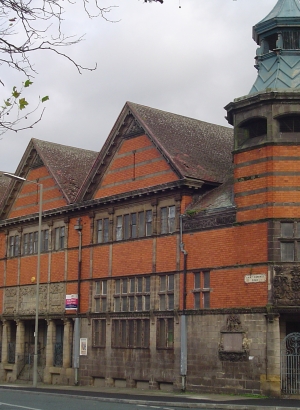
Everton Library
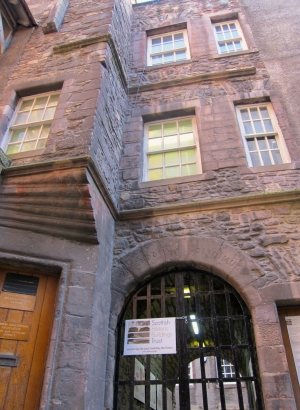
Riddles Court, Edinburgh
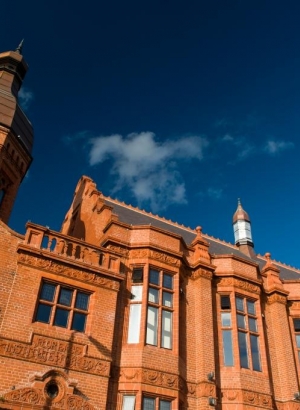
The Florence Institute, Liverpool
 Architectural Heritage Fund (AHF)
Architectural Heritage Fund (AHF) The Architectural Heritage Fund (AHF) is a registered charity founded in 1976 to promote the conservation of historic buildings in the UK. It does this by providing advice, information and financial assistance in the form of development grants and large low-interest loans to charities and other not-for-profit organisations, for projects involving the sustainable new use of a building which is listed, scheduled or in a conservation area.
The AHF plays a strong development role by providing relevant guidance throughout the duration of a project. The AHF has a team of support officers based throughout the UK who will visit potential projects and new groups. Several publications are available from the AHF and can be downloaded free unless otherwise indicated from www.ahfund.org.uk.
Please note: the AHF cannot help private owners, commercial developers nor churches or other faith buildings that are still in use for worship.
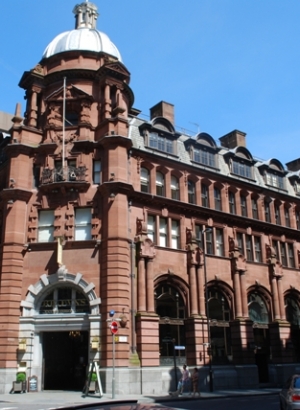
HB&P secured the listing of this fine Edwardian bank in Manchester, saving it from demolition
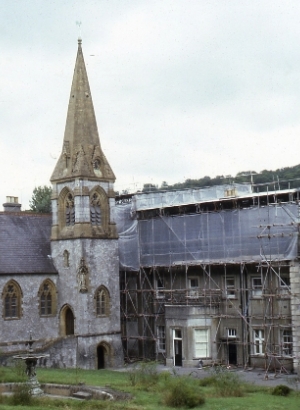
HB&P successfully contested the application to demolish Maristow House, in Devon at a public inquiry – the building has now been converted into flats
 Historic Buildings & Places
Historic Buildings & Places Historic Buildings & Places, previously known as the Ancient Monuments Society, works to sustain, defend and promote all aspects of the built historic environment, for the benefit of all. We have a particular interest in everyday heritage, hidden treasures and community favourites. Founded in 1924, we are one of the National Amenity Societies and we champion historic buildings and places of all ages and all types.
Please note that Historic Buildings & Places does not offer grants or loans.
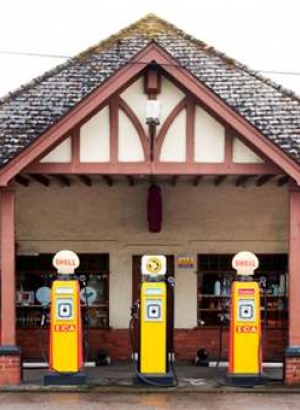
Colyfor Filling Station, Devon
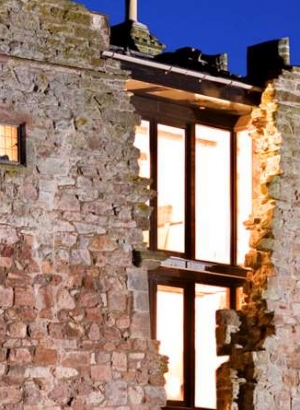
Blencowe Hall
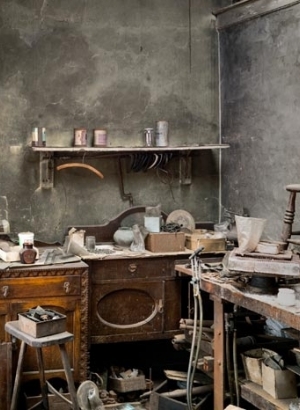
J W Evans, Birmingham
Historic England looks after the historic environment, providing expert advice, helping people protect and care for it, and helping the public to understand and enjoy it.
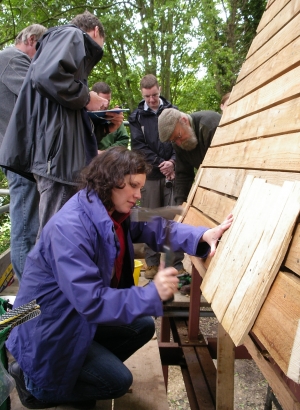
An SPAB Scholar tries timber shingling
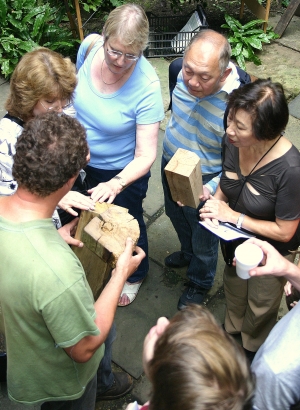
Visitor to an "Open House" event at the SPAB's HQ in Spitalfields, east London
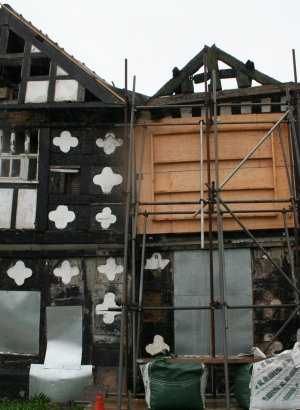
The SPAB has campaigned for this building at risk and has helped pay for emergency works
 Society for the Protection of Ancient Buildings (SPAB)
Society for the Protection of Ancient Buildings (SPAB) The SPAB is the UK’s oldest building conservation body, founded by William Morris and others in 1877.
It protects historic buildings through advice, training, awards and campaigning. Our specialism is repair and maintenance of the structural fabric and finishes of old buildings. We publish guidance and run a free technical advice service on weekday mornings (020 7456 0916). In its casework, the SPAB advises councils and others on threats to the fabric of old buildings (where the building dates from 1720 or before). The Society also runs a range of courses and training programmes.
Advice
Please note that the SPAB cannot help with:
Training & Education
Awards
Grants
The SPAB is not generally a grant-making body but has a few small funds:
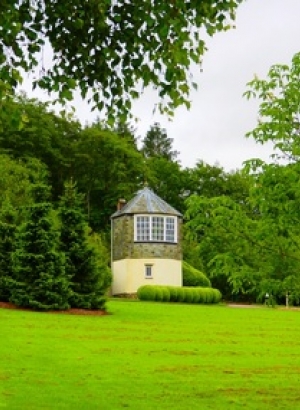
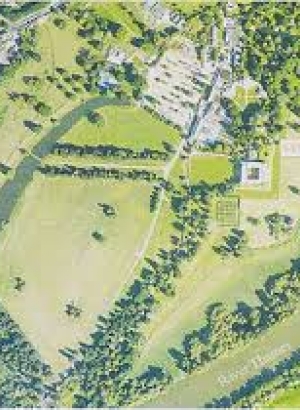
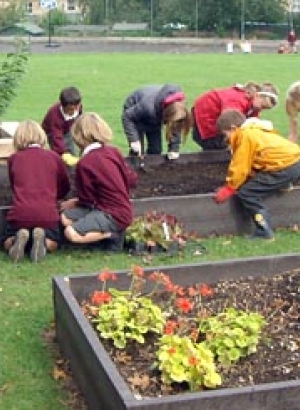
 Gardens Trust
Gardens Trust The Gardens Trust was formed by the merger of the Association of Gardens Trusts (AGT) and the Garden History Society (GHS) on Friday 24th July 2015.
•To promote the study of the history of gardens and gardening, landscape gardening and horticulture in all its aspects
•To promote the protection and conservation of historic parks, gardens and designed landscapes and to promote and advise on their conservation.
•To promote County and Country Gardens Trusts and through them education, appreciation and involvement of the public in matters connected with the arts and sciences of garden land.
•To encourage the creation of new parks, gardens and designed landscapes.
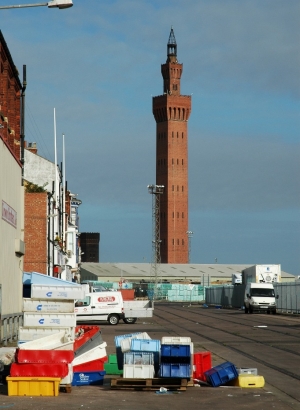
Grimsby's Historic Dock Area
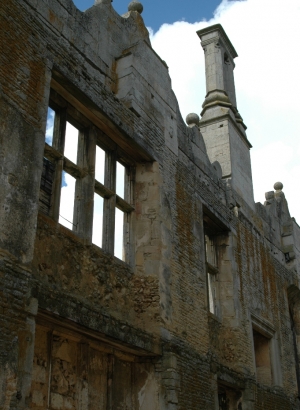
East range at Kirby Hall
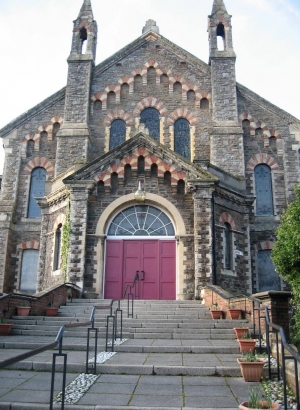
Conwy Road Methodist Church
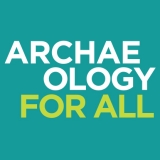 Council for British Archaeology (CBA)
Council for British Archaeology (CBA) The Council for British Archaeology is the leading independent body for UK archaeology, bringing together professionals, volunteers and communities to open up archaeology for all.
It has a particular interest in historic buildings as an important part of the material evidence for the study of past human behaviour.
The CBA’s primary concern with historic buildings lies not with aesthetics, or amenity considerations, but with the archaeological evidence contained in the fabric of the structure. The approach includes:
As well as advising on formal notifications through the listed building consent system we welcome informal contacts from owners, developers, architects, local groups or individuals.
The CBA uses a network of expert local correspondents, a specialist panel of advisors and professional staff to advise on how to minimise the impact of any development proposals, and on assessment and recording. We also make our casework available to all via an online database, accessible at http://www.cbacasework.org/.
More broadly, the CBA works across the UK to open up the UK’s rich heritage for all and safeguard it for future generations. We operate a Young Archaeologists’ Club for 8-16 year olds and work to involve people in archaeology, give everyone an opportunity to discover more about the archaeology of the UK, and champion the importance of the UK’s rich archaeological heritage.